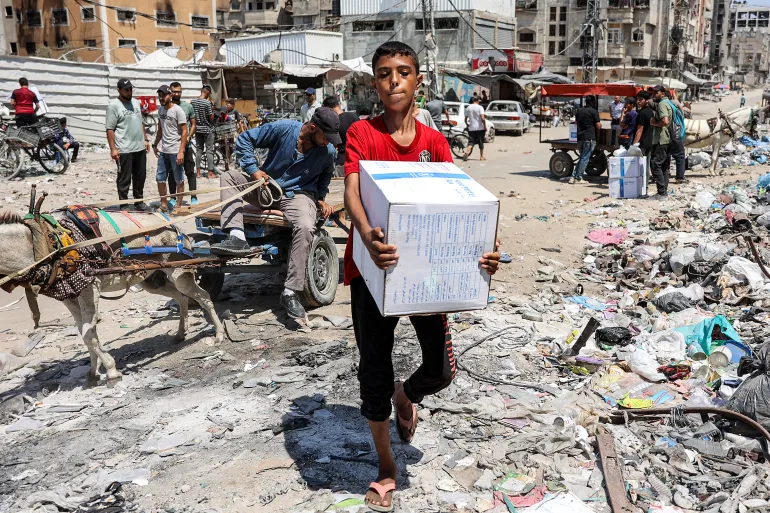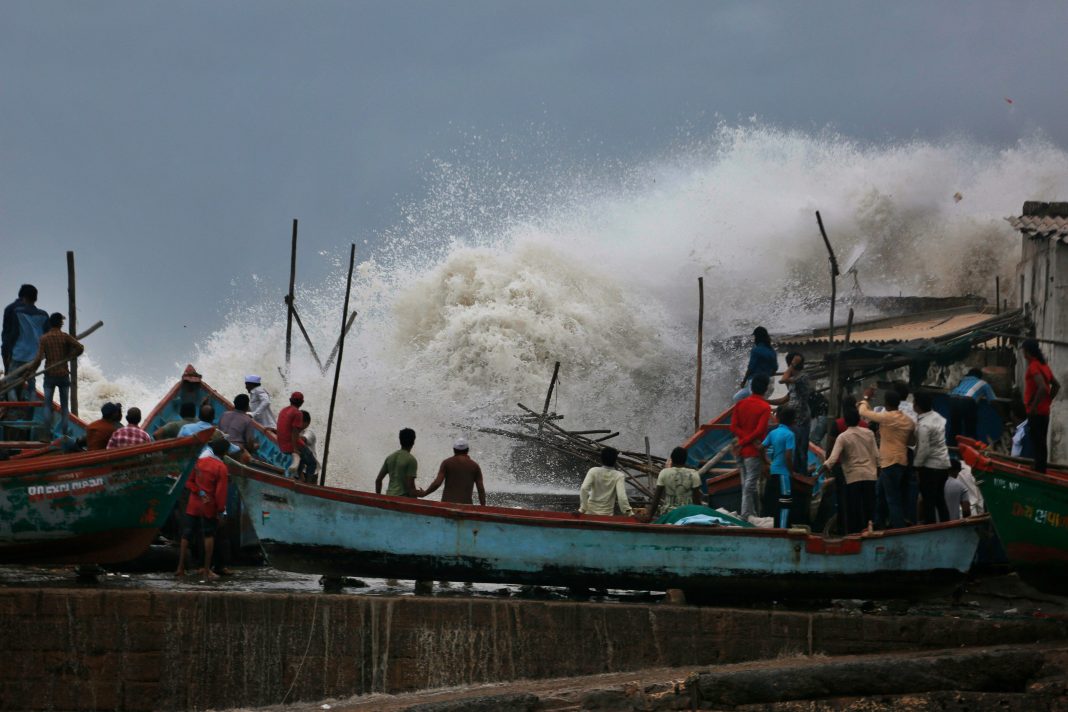As Israel intensifies its military campaign in Gaza, the United Nations warns that the ability to deliver essential aid, including vaccines, has reached a critical point. Despite this dire situation, the United States, Israel’s key ally and the UN’s largest donor, has offered little public pressure to ease the humanitarian crisis.
On Monday, a UN official announced that nearly all aid operations in Gaza had been halted after Israel issued sweeping evacuation orders. The following day, the UN’s World Food Programme suspended employee travel in Gaza after one of its vehicles was fired upon near an Israeli checkpoint, though fortunately, the staff inside were unharmed due to the vehicle’s bulletproof glass.
Human rights advocates argue that the US has a moral obligation to intervene, especially as childhood malnutrition rates surge and cases of polio—a preventable yet highly contagious disease—re-emerge in Gaza. Raed Jarrar, advocacy director at Democracy for the Arab World Now (DAWN), criticized the US government for its silence, stating, “The United States government has run out of words and hasn’t even issued its usual performative statements to comment on the UN suspension of its aid operations in Gaza.”
Blocking humanitarian aid and attacking aid workers could constitute war crimes under the Geneva Convention, legal experts warn. The UN’s Office for the Coordination of Humanitarian Affairs (OCHA) reported a sharp rise in acute malnutrition among Gaza’s children from May to July, with a 300% increase in the north and a doubling of cases in the south.
The UN is preparing to launch a massive polio vaccination drive in Gaza, but the inability to deliver food and other necessities could worsen the health crisis. Hassan el-Tayyab, legislative director for Middle East policy at the Friends Committee on National Legislation, emphasized, “Patients suffering from malnutrition have a much lower effectiveness when taking this vaccine, so we need food to ensure that the vaccines even work.”
Calls for Diplomatic Pressure
The World Food Programme’s recent revelation that one of its vehicles was hit by Israeli gunfire highlights the extreme risks aid workers face. Despite the dangers, advocates like el-Tayyab believe that the US, under President Joe Biden, could play a crucial role in securing a temporary pause in the fighting to allow aid to reach those in need.
US Senator Chris Van Hollen echoed the UN’s call for a seven-day humanitarian pause to administer vaccines to the approximately 640,000 children in Gaza. However, while the Biden administration has signaled its support for combating polio in the region, it has not issued any concrete plans to ensure aid delivery.
Israeli media recently reported that the government might allow temporary pauses in the fighting for vaccine distribution, though Gaza’s Ministry of Health has not been informed of any such plans. Jarrar expressed skepticism, criticizing the Biden administration for not holding Israel accountable. “The Biden administration is so deep in the zone of aiding and abetting Israel’s crimes that it doesn’t even bother to maintain the pretense,” he said.
Focus on Ceasefire Talks
The Biden administration has largely concentrated its diplomatic efforts on achieving a ceasefire, which US officials believe would facilitate greater aid access to Gaza. Speaking at the Democratic National Convention on August 19, Biden stated that the administration was working “around the clock” to prevent a wider war in the region and to “surge humanitarian health and food assistance into Gaza now.”
However, advocates like Annelle Sheline, a former US State Department analyst who resigned in protest over US policies towards Gaza, are concerned about the administration’s silence on Israel’s restrictions on aid. Sheline argued that the lack of public criticism from the Biden administration reflects a troubling commitment to supporting Israel, regardless of the humanitarian consequences.
Sheline pointed to the recent appointment of Mira Resnick, known for her strong support of weapons transfers to Israel, as the new deputy assistant secretary for Israeli-Palestinian affairs. “This appointment signals the administration’s comfort with the ongoing situation in Gaza,” Sheline said. “The US’s continued arms support to Israel, even amid these conditions, shows a deep disregard for civilian suffering in Gaza.”



